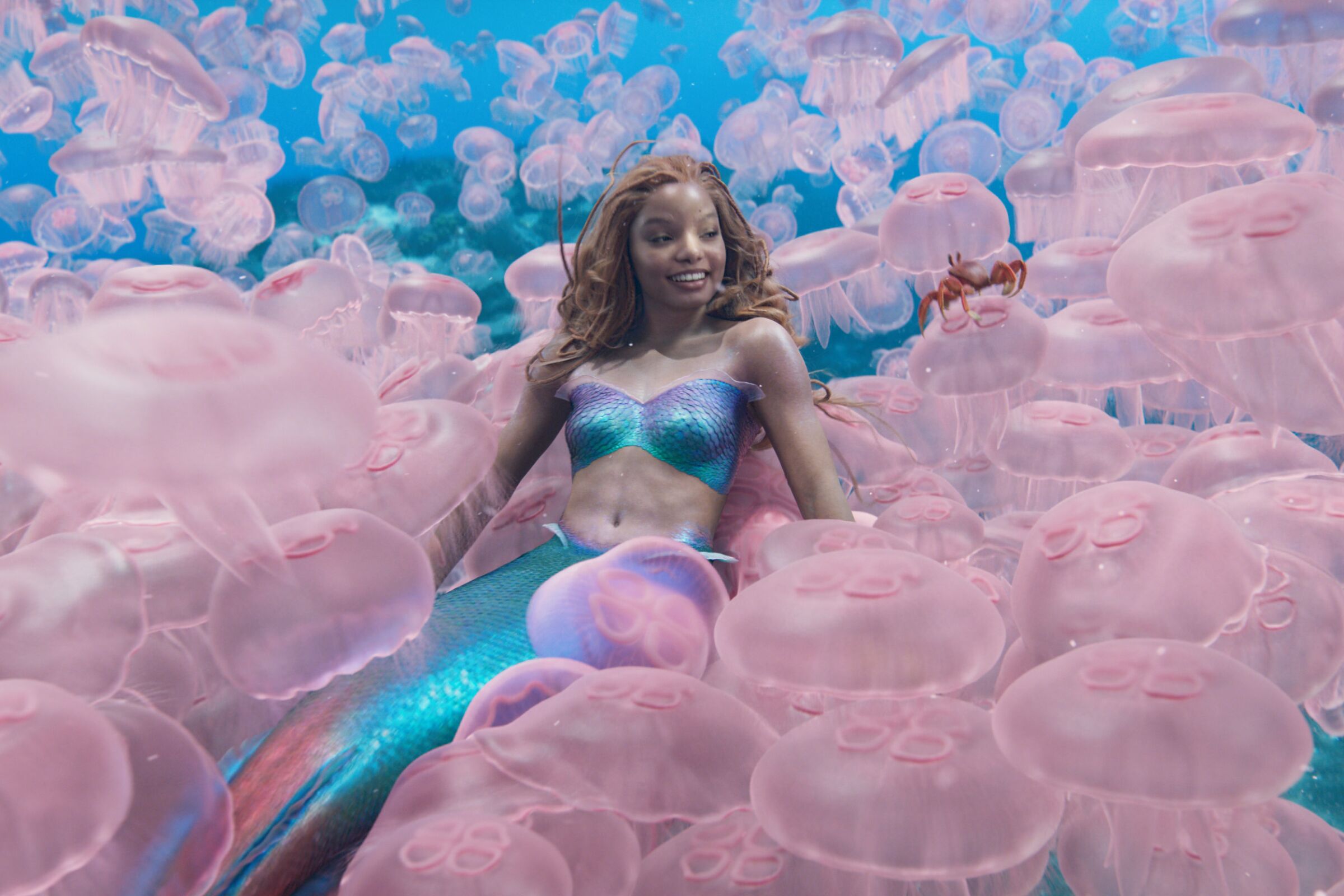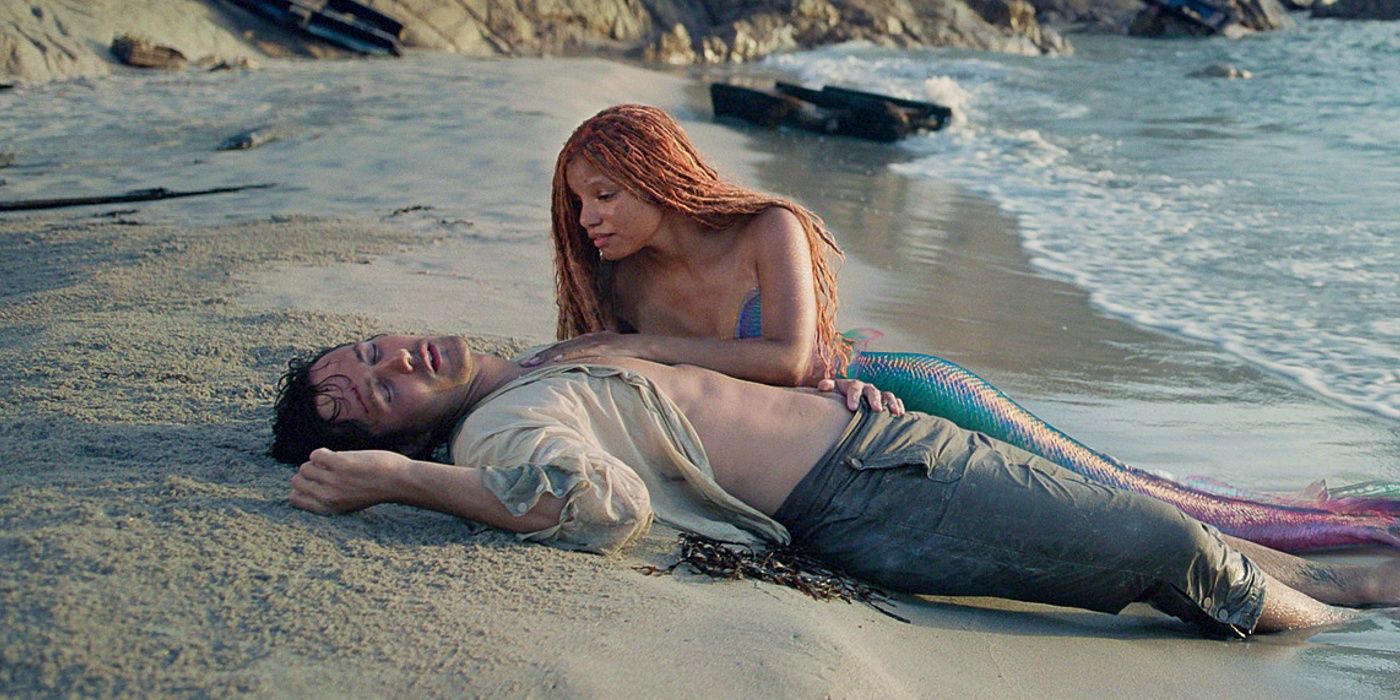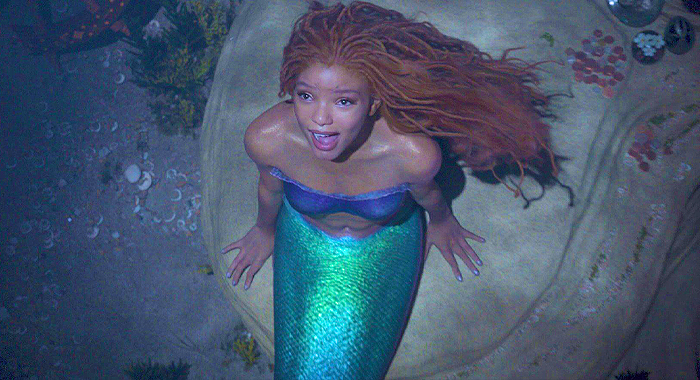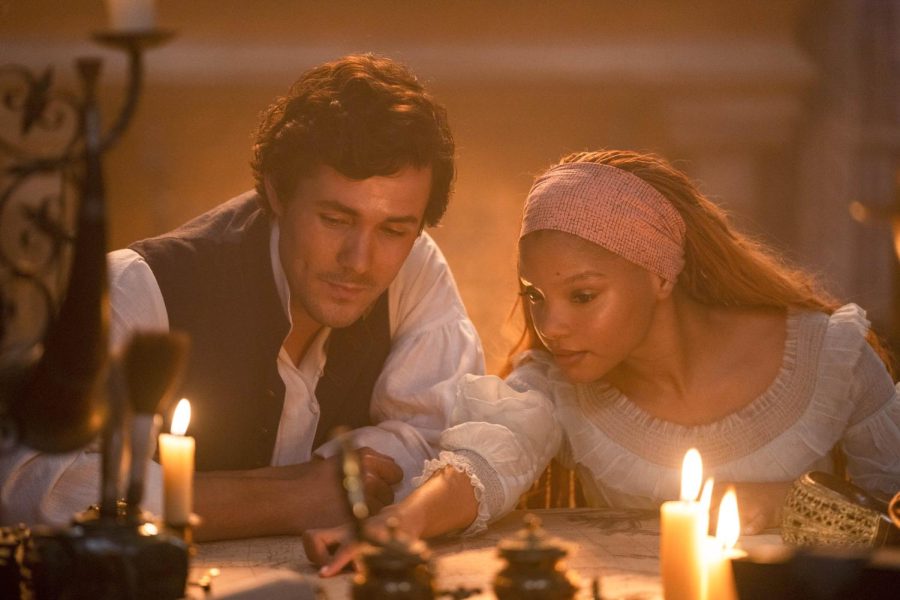‘The Little Mermaid’s’ perfect casting blows audiences out of the water
Ariel (Halle Bailey) sings about wishing to explore life above the ocean in “Part of That World.”
May 30, 2023
Stirring an online controversy over the casting of its lead actress, Disney’s “The Little Mermaid” was released in theaters on May 26, carrying viewers through endless magical performances throughout its 2.5 hour run. The live-action remake of the original 1989 animated “The Little Mermaid” features Halle Bailey of pop-duo ChloexHalle as Ariel and the charming Jonah Hauer King as Prince Eric. Despite the disappointing CGI and upsettingly cheap feel of the underwater scenes, “The Little Mermaid’s” brilliant casting, execution of a romantic arc missing from the original film and perfect tribute to the timeless story makes it a must see for both newer and older generations.
Gracefully floating through the ocean with her glowing aura and entrancing siren voice, Ariel (Halle Bailey) carries the film through her perfect blend of childlike innocence and strong-willed passion for exploring human life, providing a deeper perspective on Ariel’s motives, rather than the simple cliche of finding a man. Bailey’s top-tier performance as Ariel is specifically important due to the viral outrage over the Black actress taking on a role originally picturized for a white character, leading to the hashtag #NotMyAriel. However, Bailey’s versatile skills that allow her to communicate through just her eyes — due to her character’s voice loss in the movie — and the unique style she brings to the classic Ariel songs add a new, bright personality to the Disney princess, making clear that she was the perfect choice for the mermaid “under the sea.”
Along with Bailey’s brilliant performance, the movie also shines due to her brilliant costar Jonah Hauer King as Prince Eric. The filmmakers’ choice to provide Eric with an adopted family and somewhat-outcast life similar to Ariel’s makes his motivations and personality captivating, providing a real reason for Ariel to fall in love with him for more than just his looks. When Eric finally meets Ariel in the castle, the chemistry between the two actors is undeniable — from the devotion in both their eyes to the accidental embraces of their arms, the slow-burn romance in a surprisingly short amount of time makes the relationship feel more than authentic, especially more than the rushed one in the animated movie.
While the two leads of the film had stellar performances that made “The Little Mermaid” feel like a romantic-comedy movie at times, Ariel’s animal friends Sebastian the crab, Flounder the fish and Scuttle the bird felt cheap and rushed in their design. Sebastian looked like a cartoon whereas Flounder and Scuttle seemed like actual animals with animated mouths. The underwater world was clearly saturated and edited with VFX that detracted from the magical world established by the film into a more childish, tacky feel, even if Daveed Diggs’ performance as Sebastian was fun and authentic to the original.

The cinematography of the ocean scenes was bright blue and gorgeously breathtaking until the overediting of the underwater scenes became apparent in numbers like “Under the Sea,” a classic Disney song that Sebastian sings to Ariel to convince her of the beauty of the ocean world. However, the film’s attempts to make this live-action version of the song as visually iconic as the original instead overcrowded the screen with far too many CGI jellyfish and mermaids. The obvious fakeness of the underwater world is also drastically juxtaposed by the Bridgerton-esque feeling of the land scenes with the prince’s castle. These two very different cinematic approaches may have been intended to show the difference between the two worlds, but instead make the film feel out of place with itself.
While some changes, like cutting songs like “The Daughters of Triton” and adding an unnecessarily irritating rap song for Scuttle, were likely upsetting for lovers of the original franchise, most changes added a beautiful, independent narrative for Ariel. The movie shifts from the classic Disney princess damsel-in-distress trope by changing lyrics in “Kiss the Girl” to include consent and adding the shared interest of exploration to Ariel and Eric, destroying the idea that he was trying to take advantage of a girl who cannot speak. Furthermore, the addition of composer Lin Manuel Miranda’s “Wild Uncharted Waters” as Eric’s solo song and “For the First Time” as Ariel’s solo song provide deeper insight into the leads’ motives for the viewers to empathize with.

Most problems with “The Little Mermaid” stem from the misogynistic mindset of the times from which it was written, and the basis of the story simply cannot be fixed with the changes to the live-action version. Still, “The Little Mermaid’s” prioritization of the couple’s romance and individual development, homage to its original source material and outstanding acting and vocal performances outweigh the abundance of unnecessary, cheap visual effects, making this adaptation one to keep viewers wishing to return back into the wild, uncharted waters time and time again.
4/5





























